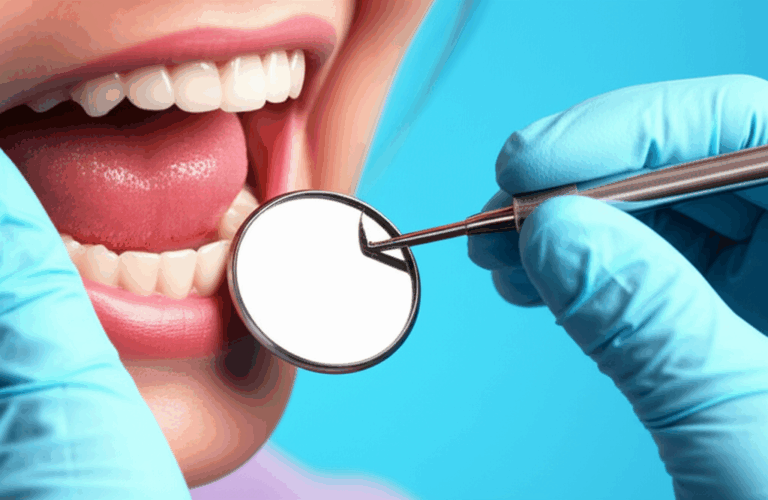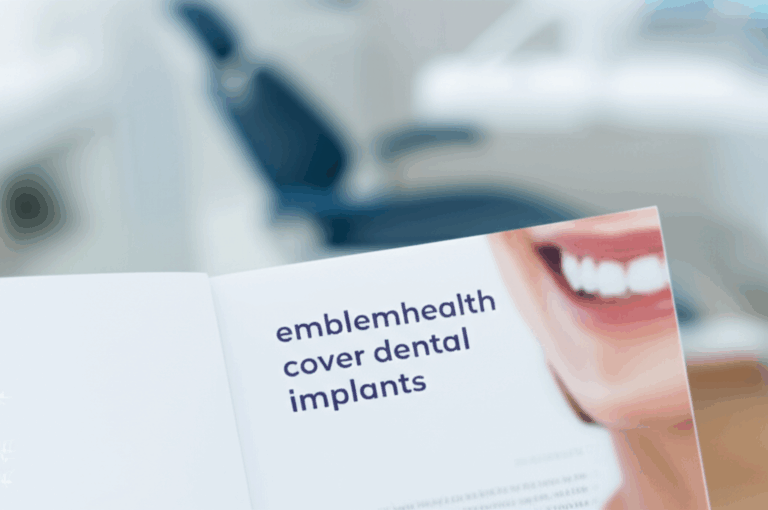
Does Molina Cover Dental Implants? A Simple Guide to Your Coverage and Options
That sinking feeling when you find out you need dental implants—and then realize you’re not sure if your insurance will help pay for it. If you’re searching for “Does Molina cover dental implants?”, you’re not alone. This is one of the most common questions people have about dental care. Figuring out how to pay for implants, especially with an insurance plan like Molina Healthcare, can feel confusing. Good news? You’re in the right place.
Dental implants can really change your life if you’ve lost teeth, but they are expensive and insurance coverage rules can be hard to understand. Molina Healthcare offers different plans (like Medicaid, Medicare Advantage, and Marketplace options), and each has its own way of dealing with dental coverage. Deciding if your Molina plan will help can be confusing—so let’s make it simple.
In This Article
- The Short Answer: It Depends on Your Molina Plan
- Molina Medicaid and Dental Implants
- Molina Medicare Advantage and Dental Implants
- Marketplace (ACA) Plans from Molina and Dental Implants
- When Are Dental Implants “Medically Necessary”?
- How to Check Your Molina Dental Implant Coverage
- Other Choices and Help if Molina Doesn’t Cover Implants
- Easy Next Steps
The Short Answer: It Depends on Your Molina Plan
If you want a fast “yes” or “no,” here’s the honest answer: It depends on which Molina plan you have. Just like other insurance companies, Molina Healthcare has different types of coverage, like Medicaid, Medicare Advantage, and Marketplace plans. Each has its own rules for dental implant coverage.
Here’s the simple truth:
Dental implants are usually not covered by Molina (or many insurance plans) unless you have a clear medical need. If you want an implant mainly to look better—like replacing a tooth lost years ago—insurance probably won’t pay. But if you need the implant because of an accident, a health problem, or because dentures don’t work for you, you might have a small chance.
Coverage depends on a few things:
- Your type of Molina plan (Medicaid, Medicare Advantage, Marketplace)
- The rules in your state (for Medicaid)
- Whether your case counts as a “medical need” instead of something just for looks
- Details of your plan, like what is included or left out
Let’s look at each option in detail with real-life examples and clear tips.
Molina Medicaid and Dental Implants
State Differences for Medicaid
Medicaid is tricky because every state has its own rules. Molina’s Medicaid plans are whatever your state covers. Here’s the problem: Dental coverage for adults under Medicaid is limited in most places, and dental implants are almost always left out—except in very rare cases.
- Regular dental care: Things like cleanings, fillings, exams, and pulling teeth—these are usually paid for.
- Big procedures: Things like root canals or dentures might be covered if your state’s Medicaid is a bit better.
- Dental implants: Only a few states (like Maryland, Massachusetts, Vermont) might cover implants if they’re really needed for your health—usually after an injury or for certain health problems.
For example:
Say you have Molina Medicaid and live in Texas. Texas Medicaid pays for emergency extractions and some basic dental work, but not dental implants—no matter what, even if you lost a tooth in an accident.
But let’s say you’re in Maryland, had surgery to remove a tumor in your jaw, and now dentures don’t work for you. If your doctor writes a letter explaining why you can’t use other options, Maryland’s Medicaid (and Molina Medicaid) may look at your case for implants.
What Molina Medicaid Usually Pays For
Most of the time, Molina Medicaid dental benefits look like this:
- Covered: Exams, cleanings, X-rays, fillings, pulling teeth
- Sometimes covered: Root canals, dentures, partials
- Rarely or never covered: Dental implants, bridges, braces (except for kids or in special cases)
What to do:
> Check your state’s Medicaid dental handbook or the Molina Medicaid website for your state. You can also call Molina customer service and ask about adult dental benefits.
Molina Medicare Advantage and Dental Implant Coverage
Extra Dental Benefits
If you have Molina Medicare Advantage (Part C), there’s a little more hope. Original Medicare (Parts A and B) doesn’t cover dental care, but Medicare Advantage plans often add extras like dental, vision, and hearing.
“Extra dental benefit” sounds nice, but it’s usually extra basics. Most plans cover cleanings, check-ups, minor fillings—not implants.
What’s Covered and What’s Not
- Most Molina Medicare Advantage plans give you regular dental benefits and some coverage for things like fillings or dentures.
- Dental implants: Usually not covered—or, if they are, the benefit is very small compared to the real cost.
- A small number of plans may give you an allowance for bigger treatments. Sometimes that’s $1,000–$2,500 a year. Since one implant can cost $3,000–$6,000, this only helps a little.
Important: There’s a limit to what they’ll pay each year. If your plan has a $2,000 “major dental” limit, that’s all they’ll pay for all your dental work that year.
What to do:
> Get your Evidence of Coverage (EOC) or Benefits Summary for your Molina Medicare Advantage plan. Look for anything about dental implants, big dental treatments, or implant benefits. If you’re not sure, call Molina’s member help line.
Marketplace (ACA) Plans from Molina and Dental Implants
What’s Essential—And What’s Not
Shopping for health coverage on the Marketplace? Here’s what many people don’t know: The Affordable Care Act (ACA) says children must have dental coverage as “essential”—but not adults. Adult plans might offer dental, but it’s up to them.
- Adults: Dental (especially implants) is optional.
- Kids: Dental is a must, so your plan must offer something for children.
Built-In or Extra Dental Plans
Check your Marketplace plan:
- Included dental: Your health plan has dental added in, usually basic work (cleanings, exams, fillings).
- Separate dental: You buy a separate dental plan, which might pay for more—sometimes even implants, but always check.
Note: Separate dental plans often make you wait (six months to a year) for big work like implants.
What to do:
> Read your plan’s “Benefits Summary” and ask if dental implants are paid for. Make sure you know about waiting times, yearly limits, and if you need to get permission before treatment.
When Are Dental Implants “Medically Necessary”?
A big part of this is medical need. So, what does that mean for dental implants and Molina plans?
Medical Need: The Main Decision
Dental implants aren’t just about looks, though that helps. There are times when not having an implant causes real problems. This is when insurance companies look at “medical need.”
Situations that might count:
- Serious face injury: You lost teeth and bone in an accident.
- Health problems: You had cancer surgery and now struggle to chew, swallow, or speak.
- Dentures won’t work: Some people can’t use dentures because of bone loss, allergies, or other health reasons.
In rare cases like these, if your dentist and doctor both explain why it’s necessary, and other options (like dentures) haven’t worked, Molina might look at your case. But nothing is promised—it’s a strict process.
Tip: “Just for looks” reasons won’t count.
What Paperwork Is Needed?
To even be thought about for implant coverage, you’ll usually need:
- A letter from your dentist explaining why you need the implant
- Medical records showing that other choices didn’t work
- A note from your doctor about how it affects your health
- X-rays or other pictures as proof
How to Check Your Molina Dental Implant Coverage
Before you start any implant treatment, always check what your plan covers.
1. Find Your Plan Papers
Start with:
- Your Evidence of Coverage (EOC), Benefits Summary, or member info
- Any special add-ons (like extra dental)
These have details about what’s covered and what’s not.
2. Call Molina Member Services
The easiest way to get answers? Call them.
You’ll find the number on your card or the Molina website.
Have ready:
- Your member ID and policy number
- Your questions written down (about coverage, pre-approval, out-of-pocket costs)
Ask things like:
- Does my dental plan pay for implants?
- If not, what can I get instead?
- What is my yearly or lifetime dental maximum?
- Are there costs like deductibles or co-pays for implants?
- Is pre-approval needed? (It usually is for big dental work.)
3. Work With Your Dentist
Your dentist’s staff do this all the time—they can help you.
- Benefit check: They can call and check for you.
- Pre-approval: Most insurance needs permission first. Your dentist sends notes and, if okayed, gets a “go-ahead” before they start.
- Appeals: If you get turned down, your dentist can help you try again.
Other Choices and Help if Molina Doesn’t Cover Implants
The price for dental implants is high. If insurance won’t help, you still have options to fix your teeth and maybe pay less.
Other Ways to Replace Teeth
Dentures:
Removable “false teeth” that replace several or all missing teeth. Medicaid or basic dental usually pay for these. Cheaper, but may not feel or work like real teeth.
Dental bridges:
Use nearby teeth as anchors for a false tooth. Bridges cost less than implants and are often paid for under regular dental.
Partial dentures:
If you’re missing a few teeth, not all. Cheaper than full dentures or implants.
Learn about these options and what might work for you at dental problems.
Ways to Make It More Affordable
Payment plans:
Many dentists let you pay over time, sometimes with no interest. Just ask.
Dental discount plans:
Not insurance—these give you lower prices at certain dentists.
Dental schools:
Letting dental students (watched by teachers) work on you. They do implants and other work much cheaper.
Community clinics:
Free or low-cost clinics help people who need dental care and may charge less based on your income.
CareCredit, health credit cards:
Let you pay for treatment over time—but check for high interest.
Dental grants or charities:
Some local groups, veterans’ programs, or charities may help pay if you qualify.
Upgrading to a Better Dental Plan
If you know you’ll want dental implants and Molina won’t cover them, look at buying a separate dental plan that covers more big treatments. Compare costs, waiting times, and what you get before you sign up.
Extra tip:
Want to know more about how crowns, bridges, or implant parts are made? Look at sites like crown and bridge lab or implant dental laboratory to see what helps your dentist fix your teeth.
Easy Next Steps
Let’s keep it simple—no confusion, just answers you can use.
Main Points
- Most Molina plans don’t pay for dental implants unless you can show a medical need (like after a bad accident or surgery), and that’s rare.
- Adult dental help under Medicaid is basic, and most states leave out implants.
- Molina Medicare Advantage and Marketplace plans sometimes give a small dental payment, but it’s usually not enough to cover an implant.
- Always read your plan details and call Molina before big dental work.
- Let your dentist’s office help with coverage checks and getting approval.
- If implants aren’t covered, look at other options like dentures, bridges, payment plans, discount cards, or treatment at dental schools. There’s almost always something you can do.
- Start by calling your insurance, get your facts, and talk to your dentist about all your choices.
Remember: Your smile is important, and you deserve good oral health—whether your insurance helps or not.
Frequently Asked Questions About Molina and Dental Implants
Do all Molina dental plans leave out implants?
Most do, but a few top-level plans might pay a little. It almost always depends on a medical need.
How much does one dental implant cost?
Usually $3,000–$6,000 per tooth (that’s implant, abutment, and crown). Ask your dentist for a price quote.
Are dental implants ever a “must-have” for insurance?
Only in rare, well-proven medical cases—like bad jaw injury, cancer surgery, or birth defects.
Can Molina say no to coverage after you start?
Yes. That’s why you must get approval before you start any big dental job.
Where can I ask for help if I can’t afford dental implants?
Check local dental schools, free clinics, discount programs, or charities. Your dentist might know good local places to ask.
Last Words
Finding out if dental implants are covered is hard, but you can handle it. Here’s how:
- Know what your plan allows
- Ask your dentist for help
- Get all the needed papers
- Look at all ways to fix your teeth and pay for it
A healthier, happier smile can happen. If you want to see more about dental materials, labs, or types of crowns and bridges like dental ceramics lab or emax dental lab, use these to ask your dentist the right questions.
You may not be able to change your insurance, but you can change how you care for your teeth. Asking questions is the first step—and you’ve already done that. Now you can take the next one with confidence.
Wishing you good health, clearer choices, and lots of reasons to smile!








